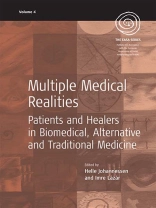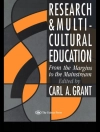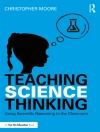Nowadays a plethora of treatment technologies is available to the consumer, each employing a variety of concepts of the body, self, sickness and healing. This volume explores the options, strategies and consequences that are both relevant and necessary for patients and practitioners who are manoeuvring this medical plurality. Although wideranging in scope and covering areas as diverse as India, Ecuador, Ghana and Norway, central to all contributions is the observation that technologies of healing are founded on socially learned and to some extent fluid experiences of body and self.
Table des matières
List of Tables
List of Figures
Preface
by Thomas Csordas
List of Contributors
Chapter 1. Introduction: Body and Self in Medical Pluralism
Helle Johannessen
PART I: BODY, SELF AND SOCIALITY
Chapter 2. Demographic Background and Health Status of Users of Alternative Medicine: A Hungarian Example
László Buda, Kinga Lampek and Tamás Tahin
Chapter 3. Táltos Healers, Neoshamans and Multiple Medical Realities in Postsocialist Hungary
Imre Lázár
Chapter 4. ‘The Double Face of Subjectivity’: A Case Study in a Psychiatric Hospital (Ghana)
Kristine Krause
Chapter 5. German Medical Doctors’ Motives for Practising Homoeopathy, Acupuncture or Ayurveda
Robert Frank and Gunnar Stollberg
Chapter 6. Pluralisms of Provision, Use and Ideology: Homoeopathy in South London
Christine A. Barry
Chapter 7. Re-examining the Medicalisation Process
Efrossyni Delmouzou
PART II: BODY, SELF AND THE EXPERIENCE OF HEALING
Chapter 8. Healing and the Mind-body Complex: Childbirth and Medical Pluralism in South Asia
Geoffrey Samuel
Chapter 9. Self, Soul and Intravenous Infusion: Medical Pluralism and the Concept of samay among the Naporuna in Ecuador
Michael Knipper
Chapter 10. Experiences of Illness and Self: Tamil Refugees in Norway Seeking Medical Advice
Anne Sigfrid Grønseth
Chapter 11. The War of the Spiders: Constructing Mental Illnesses in the Multicultural Communities of the Highlands of Chiapas
Witold Jacorzynski
Chapter 12. Epilogue: Multiple Medical Realities: Reflections from Medical Anthropology
Imre Lázár and Helle Johannessen
Index
A propos de l’auteur
Imre Lazar graduated as a medical doctor from Semmelweis University of Medicine and in 1999 became an expert of occupational medicine. He has a Master’s Degree in Medical Anthropology from the Brunel University and a Ph.D. in Behavioral Sciences from the Hungarian Academy of Sciences. Since the foundation of the Institute of Behavioural Sciences at Semmelweis University, Lazar has been teaching in the Medical Anthropology department and in 2004 he became its head. He is also associate professor at the Institute of Communication and Social Sciences, K.roli G.sp.r University of Reformed Church, Budapest.












